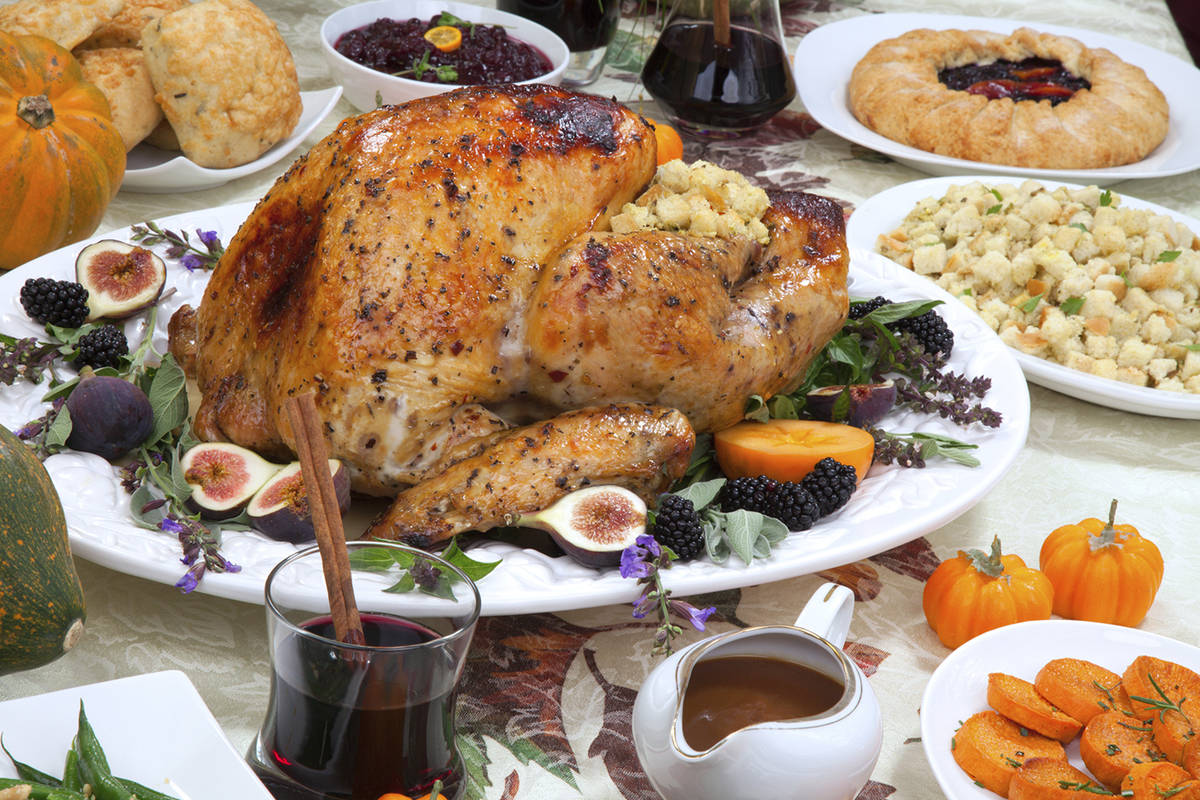VICTOR JOECKS: Coronavirus wouldn’t have stopped Pilgrims’ Thanksgiving feast
Being a Pilgrim had a 50 percent fatality rate. It’s unlikely they would have let the coronavirus alter their Thanksgiving plans.
Politicians around the country, including here in Nevada, have taken aim at Thanksgiving. Gatherings are frowned upon, if not illegal. Nevadans have been told to wear a mask in their own homes when entertaining visitors. The intrusiveness of these restrictions would make King George III blush.
All this in response to a virus with a 99.98 percent survival rate in adults between 20 and 49, according to the Centers for Disease Control and Prevention. In those up to age 19, the survival rate is 99.997 percent. From 50 to 64, the survival rate is 99.5 percent. Those 70 and older face the greatest risk. Their survival rate is 94.6 percent.
Let’s just say the Pilgrims’ adventures wouldn’t have met CDC safety recommendations.
In 1620, around 100 Pilgrims reached what is now Massachusetts and established the Plymouth settlement. The group consisted of about three dozen Puritans, a group seeking religious freedom, and others seeking a better life. Before landing, the group signed the Mayflower Compact, the first written declaration of self-government in the New World.
Those turned out to be monumental accomplishments. The Pilgrims helped set the stage for the freedom and prosperity Americans enjoy — or used to enjoy before both were savaged by governors who make British monarchs look like models of constitutional restraint.
The Pilgrims paid a heavy price, however, for freedom and opportunity. More than half of the settlers died during the first winter. In March 1621, the Pilgrims moved ashore. They soon forged an unlikely — and likely lifesaving — friendship with an Indian named Squanto, who spoke English. European explorers had kidnapped Squanto twice, taking him to Europe both times. When he returned to his homeland in 1619, he found that his entire tribe had been killed by smallpox.
Squanto taught the Pilgrims how to survive in their new homeland, including helping them grow corn and catch fish. He also helped them communicate with the nearby Wampanoag tribe. In the fall of 1621, Gov. William Bradford wanted to celebrate the successful corn harvest. A group from the Wampanoag tribe, including Chief Massasoit, joined them. It was the first Thanksgiving, although that term may not have been used.
The story of the Pilgrims doesn’t end there, however. It also contains a real-life example of the failure of collectivism. That’s worth remembering as many leftists try to use these unprecedented lockdowns to reshape America to fit their socialist fantasies.
The settlers originally signed a seven-year contract only Karl Marx could love. It required them to share collectively “all profits and benefits” that were obtained by their work. The colonists were also to “have their meat, drink, apparel, and all provisions out of the common stock.” They tried, “from each according to his abilities, to each according to his needs.”
It didn’t work — precisely because collectivism erodes the incentive to work. The young men most capable of work were upset about spending “their time and strength to work for other men’s wives and children without any recompense,” Bradford wrote. As a result, they didn’t work very hard. Theft increased too.
After two years of socialism, they turned to the free market. They assigned each family a plot of land and allowed individuals to keep the fruit of their own labor. “This had very good success, for it made all hands very industrious, so as much more corn was planted than otherwise would have been by any means the Governor … could use,” Bradford wrote.
The Pilgrims learned firsthand the benefits of allowing people to make their own decisions and live with the consequences. They also willingly undertook a journey that was much more dangerous than the coronavirus.
No, the Pilgrims wouldn’t have let a want-to-be king cancel their Thanksgiving.
Contact Victor Joecks at vjoecks@reviewjournal.com or 702-383-4698. Follow @victorjoecks on Twitter.











































